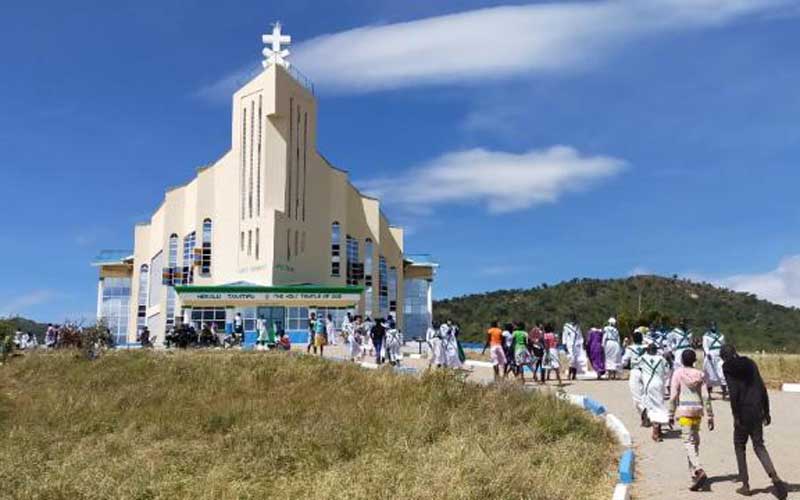×
The Standard e-Paper
Smart Minds Choose Us

Dini ya Roho Mafuta pole ya Africa Church in Sook, West Pokot in July 23, 2020. The Church was established in 1940 and was banned by the colonial government. [Christopher Kipsang, Standard]
Sook village in West Pokot County is dotted with four scenic hills with streams of water flowing to nourish plants, giving the sleepy area a natural beauty.